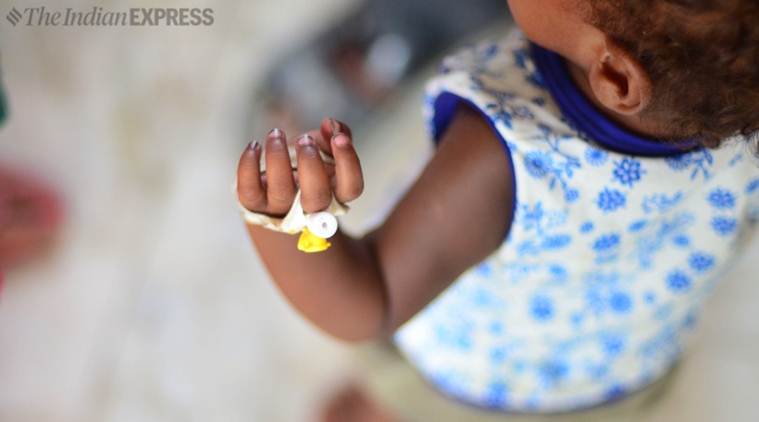
The Bihar government Tuesday told the Supreme Court that it “had already taken all possible steps to prevent the spread of the” Acute Encephalitis Syndrome (AES) disease which led to the death of over 100 children in the state and that the “Chief Minister himself is personally involved and actively engaged in finding ways and means” to control and treat the “dreaded disease”.
In an affidavit filed in response to the court’s direction on a PIL, the state Health Department said that it was tackling the problem by providing additional medical facilities in the affected region, initiating public awareness campaign at the village level, and involving various agencies to assist the government.
The document also exposed the plight of the state’s healthcare system which the department admitted had only 5,205 doctors in government-run health centres against the sanctioned strength of 12,206 and only 5,634 nurses against a sanctioned strength of 19,155.
“It is respectfully submitted that the overall human resources available in health system in the state is not as per standard norms,” the affidavit said, adding that the health department has taken steps to recruit medical officers, para-medical and other technical support staff.
The State said that “in cooperation with the Central Government, All India Institute of Medical Sciences and other agencies”, it “has simultaneously provided all the medical facilities to treat the affected children” and that “the steps taken by the State have prevented spread of the disease and reduced the fatality rate arising out of the AES disease”.
The affidavit filed by Dr Nageshwar Prasad, Additional Director of the Health Department, said the State “is aware and genuinely concerned with the problem of AES/JE (Japanese Encephalitis) disease and its effect in recent years despite best possible measures/efforts being taken”.
The Department said the State had formulated a Special Operating Procedure (SOP) for treating AES in 2012. As per the SOP, the state government has “ensured availability of essential equipment and drugs at 222 primary health centres of 12 endemic for AES districts for immediate treatment and management of the AES cases,” it stated.
The State said that “sustained efforts in the recent past to control the incidence of AES disease has shown some positive result with reduction of number of patients and casualties, but the problem of AES disease still persists and for this, SOP has been revised for treatment of AES cases on the basis of feedback provided by the physicians involved in treatment.”
It gave a break up of the reported cases and deaths due to AES. As on June 30, 2019, a total of 824 cases and 157 deaths were reported.
On the efforts to spread awareness, a booklet has been published by the Health Department and about 6,656 copies have been widely distributed to the medical college hospitals, district hospitals, primary health centres, and a soft copy of the SOP has been uploaded on the department’s portal.
“The Health Department, Government of Bihar has also issued detailed guidelines on AES and arrangement had been made to get it distributed to the public in the affected districts, particularly in the litchi growing districts, and this has also been uploaded on the Health Department’s web portal http://www.health.bih.nic.in… Health Department has been continuously undertaking mass campaign for public awareness about AES disease and the precautionary measure to control and prevent outbreak of AES disease in the affected districts,” the affidavit stated.
Besides, “Regular Gap Assessment Monitoring is being done for the control of AES/JE”.
Two meetings were held between April 8 and May 28 and “during the course of the meeting, it was found that all gaps have been fulfilled”, it said.
“In view of the steps taken by the state of Bihar, the fatality rate has come down to 19 per cent whereas the global fatality rate of AES is around 30 per cent”, the affidavit stated.
The document also spoke about infrastructure changes to deal with the problem.
Seven paediatric ICUs with 10 beds each have been made functional, it said, adding that the state government has also decided to establish 10 additional medical colleges and upgrade 10 district hospitals to model hospitals to provide quality healthcare facilities with the help of the central government.
The State, it said, had written to the Centre for establishing Regional Research Lab at AIIMS, Patna, and provision of free treatment of diseases has been made available under PMJAY-Ayushman Bharat
To address malnutrition and strengthen the service delivery system, Poshan Abhiyan has been implemented. Under this, “various behavioural change events like community awareness on complimentary feeding, hygeine and sanitation and health awareness camps are being organised” and “greater emphasis has been laid on home visits by field functionaries”.
The State said it had also initiated a socio-economic survey in affected areas to ascertain the socio-economic reasons for the outbreak.
The court had said that it raised questions of “grave concern” and sought responses from the state and centre.